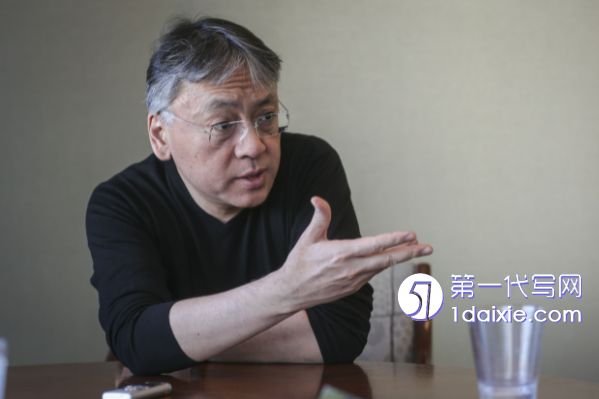本文是一篇英语论文,本文以荣格的个性化理论为基础,探讨了石黑一雄如何通过小说传递慰藉的问题,从个性化过程的三个特征入手,对人物的精神发展进行了探索性分析。
Chapter I The Perfection of Personality
1.1 Imperfect Development in the First Half of Life

Each person in the first half is in a period of immaturity and needs to adapt to thedemands of the outside world to make himself a part of it as a way of gaining spiritualsolace from the outside.At the same time,he needs to confront various problems fromwithin and without,and to deal with them requires the involvement of the persona,theshadow and the anima.At this point,however,the protagonist is unable to properlyperceive these three images,leading to the development of a negative personality.It istherefore impossible to build a perfect personality during this period.
1.1.1 Construction of False Persona
“the persona is a complicated system of relations between individualconsciousness and society,fittingly enough a kind of mask,designed on the one handto make a definite impression upon others,and on the other,to conceal the true natureof the individual.”(Wilfred,2009:305)Thus,the definition means that personas serve two purposes:to adapt to the external environment,and to hide the inner nature.Butthere are good and bad personas,and the bad one can cause problems for the subject.The most serious problem that Ryder encountered was the dislocation ofself-cognition and inner feelings due to a wrong perception of self-identity.
1.2 Perfect Development in the Second Half of Life
The biggest difference between the task of the second half compared to the firsthalf is a greater focus on the heart.At this time,a person has a deeper understandingof himself and humanity,reflecting on the characteristics of a person’s nature thatuntil now has been unconscious or has become so.Thus he consciously frees himselffrom worldly distractions both internally and externally.Certainly,the real world doesnot disappear from the individual’s attention,it just requires less energy to cope andregulate it.The dimension of life at this point no longer rests on dealing with society,but rises to the dimension of the meaning of life and spirituality.What Ryder needsnext is a shift in the spiritual dimension,and this is the same as the first half of the lifeto start from the three archetypal imageries of the persona,the shadow and the anima.
1.2.1 Reconstruction of Persona
According to Jung’s explanation,the persona is a mask created for the individualto adapt to the outside world,but it is not a negative presence,“Thus a properly fittingand well-functioning persona is essential to psychic health and indispensable if the demands of the environment are to be met successfully.”(Jacobi,1976:30)Thepersona worn by Ryder in the first half is wrong and mismatched and needs to bechanged.The second half of his life is an important stage in reconstructing a newpersona that adapts to the outside world and at the same time matches his psyche.
Chapter II The Maintenance of Individuality
2.1 Extreme Behaviour in the First Half of Life
Jung believed that the first half of life is an important stage in the adaptation ofthe individual to the outside.But once the protagonist goes further down this path ofadaptation to the outside world he will fall into an unconsolable dilemma,where heonly sees the illusory value added to himself from others,while his inner naturegradually becomes lost,which may lead to extreme behaviour.Although uniqueness isnecessary for everyone to be who they are,in the first half of life,the personality isnot yet perfected and Ryder does not yet have a clear perception of himself,so it iseasy for him to go to extremes under the influence of archetypal imagery.
2.1.1 The Opposition of Persona
The main role of the persona is to adapt to the external world and should have advantages outweigh disadvantages to Ryder in the first half of his life.As a rule,thetask of adapting to the outside should be taken up by the dominant function ofconsciousness,which helps the individual to acquire the conditions for getting alongwith the society.But sometimes the inferior function leaps into action,in which casethe persona inevitably has some defects that cause it to become the opposite of thenormal persona.The protagonist becomes not as amiable as he thinks under theinfluence of the opposite persona.His symbolic character Brodsky is thus left to solvevarious problems in social relations in a wrong or awkward way.
2.2 Independence and Integration in the Second Half of Life
“Thus the encounter with the soul-image always means that the first half of lifewith its necessary adaptation to the outside world and the resulting extravertedorientation of consciousness is ended,”(Jacobi,1976:123)Then,Ryder enters thesecond half of life in which he maintains his individuality.At this point Ryder has togive up the opposite persona that he previously identified with and return to a healthyone,to make the shadows conscious,recognising his own problems and makecorrections,and finally to withdraw the projection of the anima as well as to find hisown uniqueness.Only by doing this will he be able to return to the right path ofachieving individuation and become individualistic and at the same time sociallyintegrated in the latter stage of his life.
2.2.1 Return to Persona
Caught in the trap of being the“inner figures”,Ryder urgently needs to return tohis proper persona.His arrogant personality has been greatly displayed in the first half,and the task now is to leave the heroic image behind and find his natural,unadulterated self.A healthy and complete persona will help Ryder to adapt to theoutside world while maintaining his uniqueness.This requires Ryder to adopt acorrect attitude towards the persona,neither over-identifying with the dilemma ofarrogance,nor over-adapted to make himself at a loss.
Chapter III The Integration in Collectives
3.1 Unprincipled Self-sacrifice in the First Half of Life
Jung defined the goal of the first half of his life as accomplishing all mundanematters and adapting to the outside world,which includes acquiring social status andthe entire collective in which the social identity resides.Ryder,a world-famous pianist,must maintain his social identity throughout the world;Gustav,a hotel greeter,has ahigh prestige in the city’s service community and must therefore maintain his identityin that city as well.But it is the identity,the infinitely identifying external-orientedpersona,that leads them to unconditionally reject their own shadows,ultimatelymaking their relationship with the collective more difficult to integrate.
3.1.1 Excessive Identification of Persona
“An individual whose persona is built up exclusively of traits approved by theexternal collectivity will have the persona of a mass man.”(Jacobi,1976:24)Ryder and Gustav each have high prestige in the social sphere.Paying more attention tosocial responsibilities forces them to put work before family.The social responsibilityand identity of the outside world make the whole collective have too highexpectations for them,but they themselves cannot bear such high responsibilities,which ultimately leads to different degrees of difficulties for both family collectivesand social collectives.

Conclusion
As an international writer,Kazuo Ishiguro has always been concerned withuniversal human problems,and The Unconsoled is undoubtedly a masterpiece.Although the characters in the novels are all trapped in their own predicaments,andmost of the descriptions revolve around various events that are beyond consolation,Ishiguro reveals his faith in the power of the human spirit to the reader.This hasalways been the tone of his works,and no matter how much Ishiguro’s writing styleand main characters change,he never deviates from the center of his writing,which ishis concern for the human spiritual world and the modern living situation.
The protagonists in his novels often come to an epiphany at the end,gainingspiritual growth and redemption.Only this time the work is disorganized in content,and the dream world is mixed with the real world,making it more difficult tounderstand.But this is exactly what Kazuo Ishiguro intended.He intends to tell thestory in a chaotic scene,to portray a character who is burdened by responsibility,whois unable to take control of his own life.In one word,Ryder’s life is indeed trapped inthe expectations of others.However,there is still new thing that can be found.
reference(omitted)
